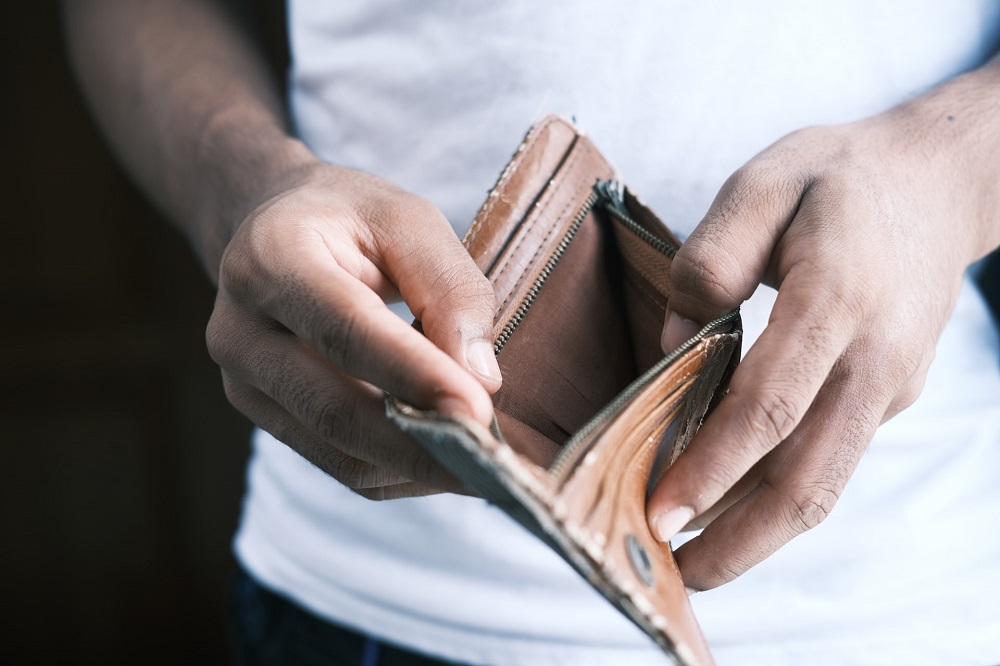Debt can be a huge burden, both emotionally and financially. If you are drowning in debt, you must take steps to become financially responsible, like learning about interest rates, the meaning of debt, and how to pay down your debt as quickly as possible. It also means changing your spending habits and budgeting for your future. With these tips, you can work through your financial problems and achieve financial freedom!
Why Debt is An Issue
When you are drowning in debt, whether it’s student loans, money you owe to a credit card company, or multiple debts, you might find it hard to see your way out. Debt can have a huge impact on your life, both emotionally and financially.
Emotionally, debt can be very stressful. Creditors can be very aggressive when trying to collect debt payments, and if you are behind, they may try to harass you. They may call you at all hours of the day or night, threaten to sue you, or even seize your assets. In some cases, a debt collector may even take away your driver’s license or passport!
Financially, debt can be just as bad. High debt can lead to higher interest rates and make it difficult for you to get approved for loans or credit cards. You may also have a harder time finding a job or renting an apartment.
The Meaning of Debt
When you are drowning in debt, it is important to understand the meaning of debt. Debt is simply when you owe someone else money and can be the result of taking out a loan, buying something on credit, or even charging your rent or mortgage to your credit card.
Interest Rates
One thing that makes drowning in debt even worse is high-interest rates. Interest rates are what lenders charge borrowers for borrowing money. The higher the interest rate, the more you will pay back over the life of the loan.
It is important to understand how interest rates work before taking out any loan. For example, if you take out a $100,000 loan with a 20% interest rate, you will end up paying back over $200,000!
Paying Down Debt
When you are drowning in debt, it is important to pay down your debt as quickly as possible. You can do this by creating a budget and sticking to it, making extra payments on your student loans, or even selling some of your belongings.
Budgeting for Your Future
Part of becoming financially responsible is budgeting for your future and setting aside money for things like retirement savings, emergencies, and unexpected expenses.
If you don’t have a budget, it can be hard to know how much money you need each month to cover your expenses. This can lead to spending more money than you have, leading to more debt.
Tips for Being Financially Responsible
There are a few things that you can do to be financially responsible when you are drowning in debt. These include:
- learning about interest rates and the meaning of debt
- creating a budget and sticking to it
- making extra payments on your loans
- selling some of your belongings
- setting aside money for retirement savings, emergencies, and unexpected expenses
Learn About Interest Rates
When you are developing a debt management plan, you must understand how interest rates work. This means learning about things like fixed and variable interest rates, compound interest, and APR.
Fixed interest rates stay the same for the life of the loan, while variable interest rates can change over time. Compound interest is when the interest is added to the principal balance (the amount you borrowed), which then earns more interest. APR stands for annual percentage rate and measures how much a loan will cost you each year. Also note that if you have bad credit, you’re likely to have a higher interest rate, which can further damage your financial situation.
Create a Budget
Part of becoming financially responsible is creating a budget and sticking to it. A budget can help you track your spending and make sure that you have enough money to cover your expenses each month.
There are a few different ways to create a budget, and the best way for you will depend on your income and expenses. Some people use pen and paper to track their spending, while others use online tools or apps.
Make Extra Payments on Your Loan or Credit Card Bill
When you are drowning in debt, it is important to pay down your debt as quickly as possible. One way to do this is by making extra payments on your loans. You can do this by adding an extra amount to your monthly payment or paying off your loan early. If you have any extra money, use the debt snowball method. Start by making extra payments to the lowest balance. When that’s paid off, roll that amount into the next bill, paying more than the minimum payment every month.
Selling Some of Your Belongings
Another way to pay down your debt when you are drowning in it is by selling some of your belongings. You can sell anything from clothes and furniture to cars and boats.
Set Aside Money for Retirement Savings, Emergencies, and Unexpected Expenses
Part of being financially responsible is setting aside money for things like retirement savings, emergencies, and unexpected expenses. This can be hard to do when you are drowning in debt, but it is important to start saving for these things as soon as possible.
There are a few different ways to save money for these things. You can open a retirement account, like a 401(k) or IRA, and contribute money monthly. You can also create a savings account specifically for emergencies or put money into a jar every month to cover unexpected costs.
Being financially responsible when drowning in debt is daunting, but you can get your finances back on track with planning and hard work. By understanding how interest rates work and creating a budget, you can pay down your debt and save for the future.
How to Get Back on Track
Paying down your debt as quickly as possible is extremely important because it can save you money in the long run.
There are a few different ways to pay down your debt, and the best way for you will depend on your income and expenses. Some people use pen and paper to track their spending, while others use online tools or apps.
A good rule of thumb for your budget (although this is not for everyone) is to have your essential expenses (like rent, groceries, and utilities) make up 50-60% of your income. This will leave you some money to put towards debt repayment as well as savings.
Other Tips for Being Financially Responsible
Some other things that most people think about that you can do to be financially responsible include:
- Avoiding unnecessary expenses, like eating out or buying unnecessary items
- Making a list before you go grocery shopping so that you don’t buy things that you don’t need
- Paying your bills on time to avoid late fees and interest charges
- Investing money wisely, such as in stocks, bonds, and real estate
- Monitoring your credit score and credit report regularly to make sure there are no errors
Avoid Unnecessary Expenses
One way to be more financially responsible is to avoid unnecessary expenses, like eating out or buying unnecessary items.
If you are trying to pay down your debt, it is important to be aware of the money you are spending and make wise choices about where it goes. Try making a list before you go grocery shopping so you don’t buy things that you don’t need or cook at home instead of going out to eat.
Paying Your Bills on Time
Another way to be more financially responsible is paying your bills on time, which can help you avoid late fees and interest charges, which can add up over time.
It is also important to keep track of when your bills are due so you don’t forget about them. You can either keep track of this information manually or use an online tool or app to help you out.
Invest Money Wisely
When trying to be more financially responsible, it is important to invest your money wisely. This means investing in things like stocks, bonds, and real estate.
By investing your money in these things, you can make sure that it grows over time and helps you reach your financial goals. It is also important to monitor your investments regularly to ensure they are still performing well.
Monitor Your Credit Score and Credit Report
Another thing that you can do to be more financially responsible is to monitor your credit score and credit report. This will help you make sure that there are no errors and that your credit rating is still good.
You can get a copy of your credit report for free once a year from each of the three main credit reporting agencies: Experian, Equifax, and TransUnion. You can also use a service like Credit Karma to monitor your credit score for free.
Being financially responsible when drowning in debt is daunting, but with some planning and hard work, you can get your finances back on track. By understanding how interest rates work and creating a budget, you can pay down your debt and save for the future.
When you follow these tips, you can start taking control of your finances and work towards getting out of debt!







